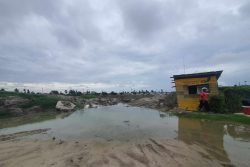Dear Editor,
We Guyanese would have to be the dumbest people on the planet, if we are going to roll over and let other Caribbean companies benefit directly from the protection of our Local Content Policy [LCP]. We have to recognize that virtually every cent spent by oil contractors is deductible from our share of profit/profit oil, so, when the oil contractor wants to buy a beer, a bottle of rum, or a loaf of bread, (remember the list?), we are, in a sense, buying it for them, with our money. Why then should we readily acquiesce that they choose another Caribbean beer over Banks, or, some other Caribbean rum over El Dorado? When they buy a car, should they buy from a dealership owned by Guyanese or from the dealership owned by say, Trinidadians? Who pays? We do. Who profits? We must decide.
Guyana has been one of the poorest English Speaking Caricom countries for decades, some of which have been doing oil for 100 years. Our industries from distribution, manufacturing, logistics, to financial services are infinitesimal to those of our Caribbean counterparts. Yet there is talk circulating among some ‘Guyanese’ about us approving what is tantamount to opening the floodgates to Caricom companies in the LCP. We don’t stand a chance against these giants, not in dollars, not in numbers, not logistically, not in experience or any other resource. The fundamental goal of an LCP is to level the playing field for indigenous companies to be able to survive, compete and grow. One key methodology for improving efficiencies in less resourceful indigenous companies, is to direct expert companies that wish to operate, in say Guyana, to form joint ventures and strategic alliances with them.
In insurance, there are some who, astoundingly, would call for non-Guya-nese owned companies to benefit from our LCP. This discourse includes insurance companies that are subsidiaries of Guyana’s largest indigenous banking, vehicle dealership, and manufacturing and distribution groups. Do their bosses at their Guyanese parent companies know that once the said floodgates are open in insurance, then they are open to their own parent industries? It’s not like there’s much reciprocity. Many Guyanese do not know that under Trinidad and Tobago’s LCP framework, where one of the stated aims is to, “remove barriers for local participation,” a Local Enterprise is defined as one, “whose principal place of business is in Trinidad and Tobago and which is effectively owned and controlled by nationals of Trinidad and Tobago.”
If there are political, trade and legislative barriers to Guyana’s LCP exclusively benefitting indigenous persons and companies, now is the time for us to use the leverage afforded us by our oil wealth, to remove them. Of course, there’s plenty for us to share with our Caribbean brothers and sisters; but if we allow them to overwhelm us, as majority beneficiaries of expenditure that we have to pay for, we might as well tear up the LCP. We Guyanese have a simple decision to make. It’s a ‘no-brainer’.
Sincerely,
Keith Evelyn






